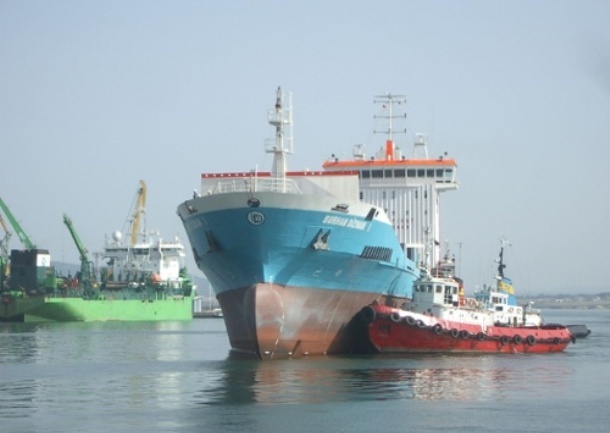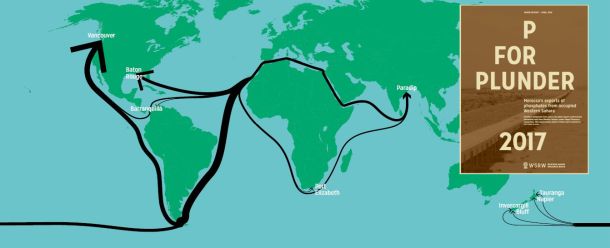
The Bulgarian fertiliser producer Agropolychim is in two days expecting a vessel with phosphates from occupied Western Sahara. The vessel could contain around 7.000 tonnes of phosphates. "Agropolychim must stop such imports and return the vessel to where it came from", demands Javier García Lachica, international coordinator of Western Sahara Resource Watch.
Read also: Letter from WSRW to Agropolychim, sent 7th of October 2008.
Update: The vessel has arrived Varna
A Turkish bulk vessel, Burhan Dizman 1, is now heading for city of Varna, Bulgaria.
The ship contains phosphate rock from occupied Western Sahara. Trade with such rock is considered highly unethical and most probably in violation of international law.
The vessel is currently doing a 14 knot speed in north direction, in the Aegean Sea, just off the coast of Turkey. It will later today pass through the Cannakale Strait and then Bosporus Strait. Possibly she will make a short stop-over in Turkey on her way.

It is estimated that she will then reach her final destination, the Bulgarian costal city of Varna, at noon, on 6th of October 2008.
From what Western Sahara Resource Watch can establish, the importer is the Bulgarian fertiliser producer Agropolychim, situated in Denvya, not far from Varna, along the railroad to the west of the city.
"Exploitation of mineral resources in Western Sahara in disregard of the wishes and interests of the local people is in violation of international law", said Javier García Lachica, international coordinator of Western Sahara Resource Watch.
Lachica points to the a legal opinion issued by the UN legal office in 2002, which says that if such mineral exploitation or exploration takes place in the disregard of the wishes and interests of the local people, then it is illegal.
"Most importantly, such imports as Agropolychim is doing is highly unethical. The trade is to the benefit of the illegal occupying power, but not to the legitimate owners of the minerals, the Sahrawi people. A majority of the Sahrawi people has been living in exile since Morocco invaded Western Sahara and took control of the phosphate deposits in November 1975", stated Lachica.
"Such trade lends legitimacy to Morocco's brutal and unacceptable occupation", said Lachica.
The ship has a DWT (deadweight tonnage) of 7.500 tonnes, which means that the maximum weight of cargo that the ship can carry is 7.500 tonnes. Since the ship also needs to carry other items (such as fresh water, ballast water, fuel, crew etc) the amount of phosphate rock she carries, should be somewhat lower, perhaps around 7.000 tonnes.
The vessel has IMO number 9381809 and is owned by Turkish ship owner Dizman Denizcilik.
New report: Western Sahara phosphate trade halved
The export of phosphate rock from occupied Western Sahara has never been lower than in 2019. This is revealed in the new WSRW report P for Plunder, published today.
New report on Western Sahara phosphate industry out now
Morocco shipped 1.93 million tonnes of phosphate out of occupied Western Sahara in 2018, worth an estimated $164 million, new report shows. Here is all you need to know about the volume, values, vessels and clients.
New report on contentious Western Sahara phosphate trade
Morocco shipped over 1.5 million tonnes of phosphate out of occupied Western Sahara in 2017, to the tune of over $142 million. But the number of international importers of the contentious conflict mineral is waning, WSRW's annual report shows.
New report on global phosphate trade from occupied Western Sahara
Over 200 million dollars worth of phosphate rock was shipped out of occupied Western Sahara last year, a new report from WSRW shows. For the first time, India is among the top importers.



